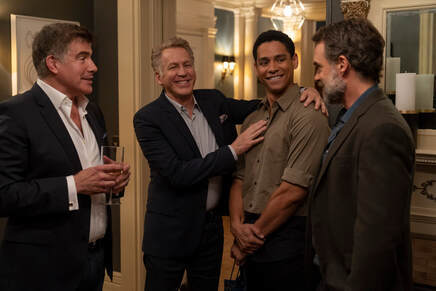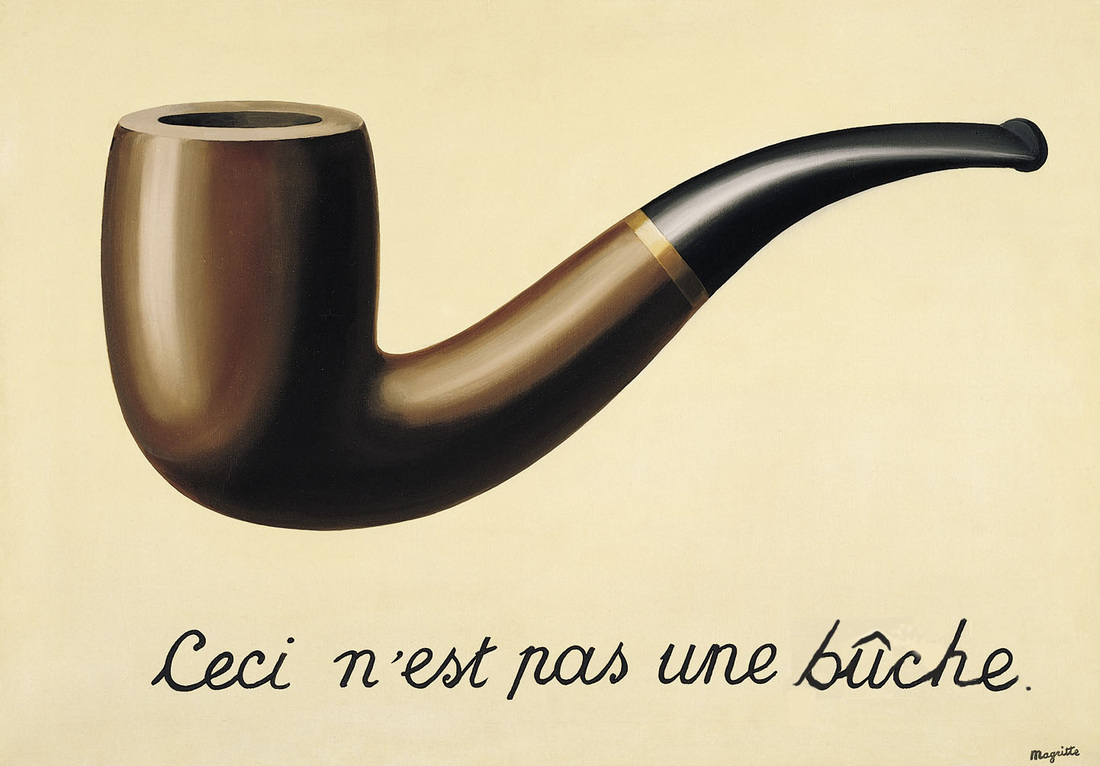 GENERATIONAL & RACIAL DIVIDES LAID BARE. Bryan Batt, Stephen Spinella, Charlie Barnett and Murray Bartlett star in episode 4 of Netflix' Tales of the City.
GENERATIONAL & RACIAL DIVIDES LAID BARE. Bryan Batt, Stephen Spinella, Charlie Barnett and Murray Bartlett star in episode 4 of Netflix' Tales of the City. Why a middle-age-versus-millennial meltdown is must-see TV
“The Price of Oil,” episode 4 of Armistead Maupin’s Tales of the City currently streaming on Netflix, is must-see TV. It offers one of the most terrifying scenes in recent television history. A group of middle-aged, gay white men at a dinner party discuss their holiday exploits: well-known anecdotes, one-upmanship, exuberant hands, screaming laughter and a self-regard bordering on insularity. The performances are pitch perfect.
When one of the group uses the word “tranny” in a less than flattering connotation, he is taken to task by a younger, gay, African American man. “I don’t think that we use that word…. Tranny, it’s offensive.”
The older gays get their hackles up. “I just don’t really appreciate that we have to be policed,” says one guest. “At a fucking gay dinner party,” adds another. The younger man refuses to back down. The rest of the party desperately wants to avoid going there: they ignore the brewing confrontation, they change the subject, say anything to avoid a middle-age-versus-millennial meltdown. To no avail.
The younger man’s sense of timing might be off, but his argument is bang on. He presses the case. “What you call someone is important,” he says, “It’s about dignity. It’s about visibility. I think we owe that to people, especially when you are coming from a place of privilege.”
The room explodes. The blow-up is worth quoting at length because it produces a passionate enunciation of struggle and survival, a cri de coeur for a generation of gay men who might find themselves at odds with the politically correct activism of today.
“So you look at me… and see what?” asks the main antagonist. “A rich white man… is that what you mean? Is that my privilege?”
The younger man, 28-year-old Ben (played by Charlie Barnett), agrees.
“Let me tell you about dignity and visibility,” continues the older man (Stephen Spinella). “Any so-called privilege that we happen to enjoy at this moment was won. Okay? And by that I mean clawed tooth and nail from a society that didn’t give two shits if we lived or died… and, indeed, did not care when all our friends started to die. When I was 28, I wasn’t going to fucking dinner parties. I was going to funerals, three or four a week. All of us were.”
“I understand,” Ben begins to say.
“Oh, you do? Really? Why? Because you saw Angels in America? Fuck that. Fuck that! You have no idea. This world that you get to live in, with its safe spaces and intersectionalities…”
“Gay marriage,” offers another guest. “Fucking without condoms,” adds another.
“… all of it,” continues the older man. “This entitlement you now have… to dignity and visibility as a gay person. Do you even know where that came from? Do you know who built that world? Do you know the cost of that progress? No, of course not. Because it would more than your generation could ever bear to comprehend. So if a bunch of old queens wants to sit around a table and use the word tranny,” his voice trails off. “I will not be told off by someone who wasn’t fucking there.”
Is your heart beating faster? Are you shaking your head in agreement... or dismay?
If you find that scene cutting, the next one twists the knife. Ben confronts his lover Michael (Murray Bartlett) for not supporting him during the argument, for tacitly agreeing with the rest of the white men at the party. “A society that doesn’t care whether we live or die,” says Ben, tearing up. “Really? Really? You are going to say that to a black man?”
Devastating.
Why do I find this terrifying? Because every character is right, in their pain and in their righteousness. Because I see myself in both “sides.”
“I think it’s a conversation we don’t get to have,” Tales of the City showrunner Lauren Morelli told me recently while I was on assignment for the LGBTQ2 publication Xtra. “I came in thinking there was a lot of resentment in our community, and we don’t get to talk about it. A lot of the resentment is because a generation of men didn’t get to grieve.”
This brief moment on Tales of the City encapsulates the incredible ambition of the series: to encourage different generations, different communities, to see each other, to empathize with each other’s pain… and forgive.


 RSS Feed
RSS Feed